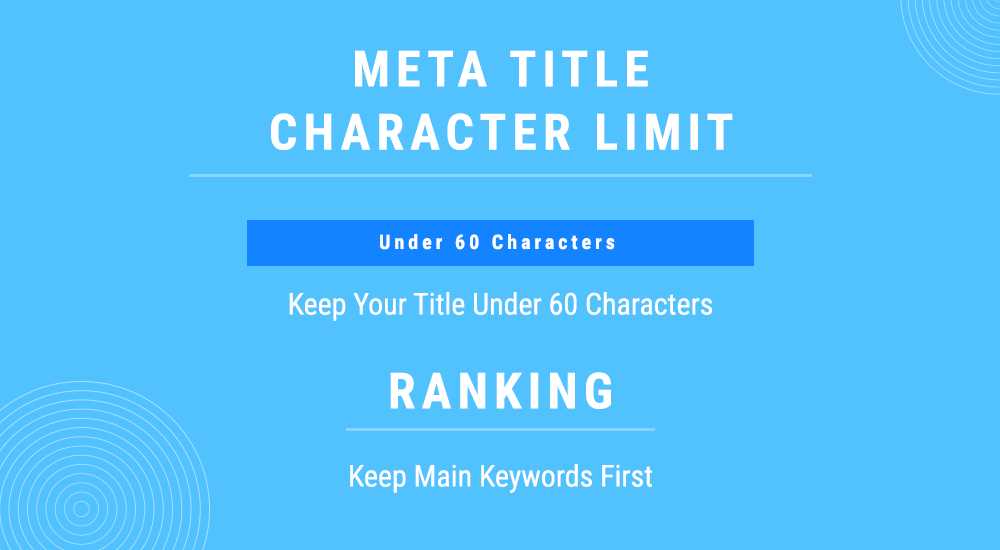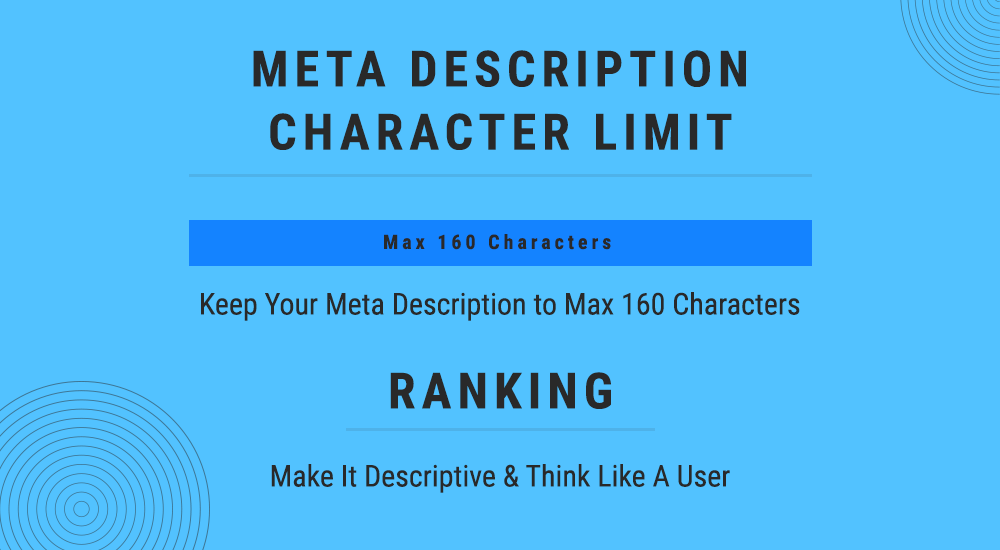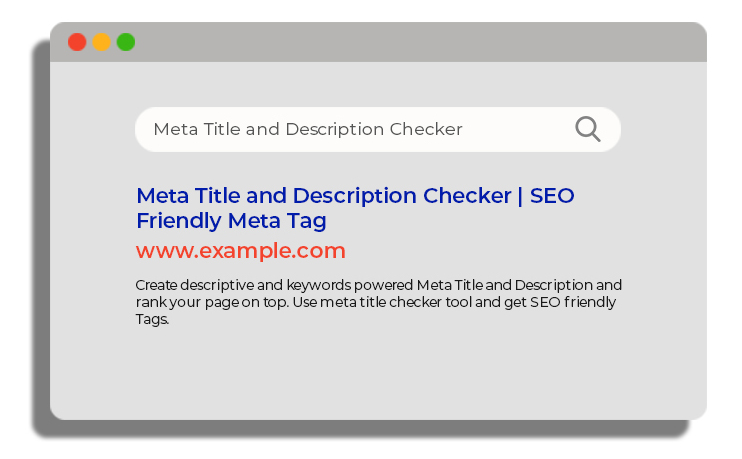Meta Title Length Checker
Meta Title Character Limit
The ideal length of meta title is about 60 characters. There is no harm if you exceed your title length but Google will truncate some characters and it will display dots at the end.

See the above example of a properly framed title in the correct length and utilising the maximum space.
Meta Description Character Limit
The recommended meta description character limit is 160 characters. Please note that Google may show an extended version of meta description bases on user's search query. But you should always keep your default description within the limit.

Learn how to write a perfect meta title & description. This is one of the main signals for Google to rank your page. This meta tag analyzer tool can help you rank higher. If you are planning to do eCommerce SEO then try and optimise categories manually and you may automate products pages.
Meta Title and Description Length Checker
Meta Title & Description Optimisation Explained
A highly optimised page with a strong title and description will help you rank higher. Make sure they have the correct length, keywords included and descriptive. This infographic will help you understand key aspects.

Meta Title Length Checker
This is a very simple meta title and description checker tool which will help you to crate and visualise how your meta tags may appear on the search engine result page.
You can spend some time thinking about your possible keywords and include them while creating a meaningful title and description.
Note: For your key pages, you should pay more attention and also keep a history of your title and description in a document and compare the combination which worked best and do required changes accordingly.

SEO is a creative task and framing a proper title and description is key to ensuring your page will fetch the right keywords. This meta title length checker also checks for the character limit and will remind you when you will exceed the limit.
Understanding Meta Title and Description
It is not rocket science to understand the basics of the page title and meta description and manage them effectively to boost your ranking.
What is a Meta Title?
The meta title is the title of a web page that is added in the HTML code and it also appears in the browser tab. It helps both users and search engines.

Users can identify the page by reading the title and it also helps them to bookmark the page. The Meta Title should be short and descriptive and of the correct length. It's a good idea to include the main keywords but not too many. It should talk about the page in general. A proper page title can help you rank higher.
You can check your meta tags in the HTML source code. To view the source code of a page, go to the page and hit CTRL + U. You can update your meta title by going to your website back-end or hosting panel. If you have a WordPress website then you can go to your post or page in the back-end to edit the title.
What is a Meta Description?
The meta description is a short description of the page which also gets added in the HTML source code. It's longer than the meta title. Most of the search engines generate snippets using the meta description.
The normal rule of thumb is to add primary keywords in your meta title and secondary keywords in your meta description.
Also, learn about the time taken by Google to update the meta title and description.
How to write SEO Friendly Page Title and Meta Description?
Simple creative changes in your page meta tag can lift the ranking by a few positions. If you are already ranking on page 1 then you should even pay more attention as your traffic increase dramatically with these changes.
- Make sure they are unique for each page.
- Do not include too many keywords, try to make it descriptive.
- You may include your business name at the end if you don’t have enough words in your meta title.
- Try to be within the recommended length. Don’t worry if you exceed by a few words, search engines do a relatively good job showing important components.
- Good meta title impacts ranking. You can change your meta title occasionally, keep a history of changes and once your page is stable use the one which performed better.
- Even if you may have a proper meta title and description, sometimes search engines may generate snippets differently based on what users may search for. Do not worry it's perfectly normal.
If you plan to do SEO yourself then learning to optimise the page title could help you make your page catchy in Google search results.
How to make my Meta title stand out in the search result?
There are many ways you can enhance your search result snippets to have a strong appearance. One of the best ways of achieving this is by implementing Google structured data to show your reviews, faqs and other schemas.
Need Help? Book a face-to-face meeting with a local SEO consultant in Melbourne strategist. We build a long-term SEO strategy. Learn more about the average SEO cost per month in Australia.
Should I automate my Meta Tags?
If you have a big site with hundreds of pages then it becomes very difficult to manually manage meta and description for all pages. And hence you will need to automate pages with less importance. If you do eCommerce SEO then you may need to rely on some level of meta title automation especially for products.
How to manage meta tags while doing website migration?
You need to have a very specific plan to manage meta titles while going through the change. Visit our website migration checklist to learn more.
Google SERP Snippet Optimisation Tool
If you would like to test how your page title and description may appear in Google search engine results pages (SERP) then you can use this Meta title and description checker tool to get an idea as to how it may appear. The benefit of using the Meta Title checker tool:
- You will get an idea of how appealing your page may appear in Google search.
- You can also check the keywords balance in your title and description.
- You will have the opportunity to apply changes till you get them right and then use it on your website and let Google crawl your changes and add to the index.
FAQs
Will I get penalty from Google if I exceed the meta title length?
There is no penalty for exceeding the limit. If you will exceed then Google may truncate some characters. Try to keep your main pages in the right length.
What tool should I use to optimise my meta title and description?
You can use this tool. Alternatively, if you use WordPress then you can try Yoast SEO plugin. Use your own creativity along with using the tool.
How often should I change Meta Titles?
There is no rule but when you work on your page then try a few combinations over time and see what best works for your page and also go back and check the history.
Do proper meta tags help in ranking on top?
This is one of the main signals to help rank a page out of several hundred signals used by Google. Keeping this in order means you will tick one out of many SEO tasks to rank a page.
Can I just put keywords in the page title?
You can but its always good to keep your page title descriptive which will make more sense to your visitors. Just adding too many keywords may look spammy.
